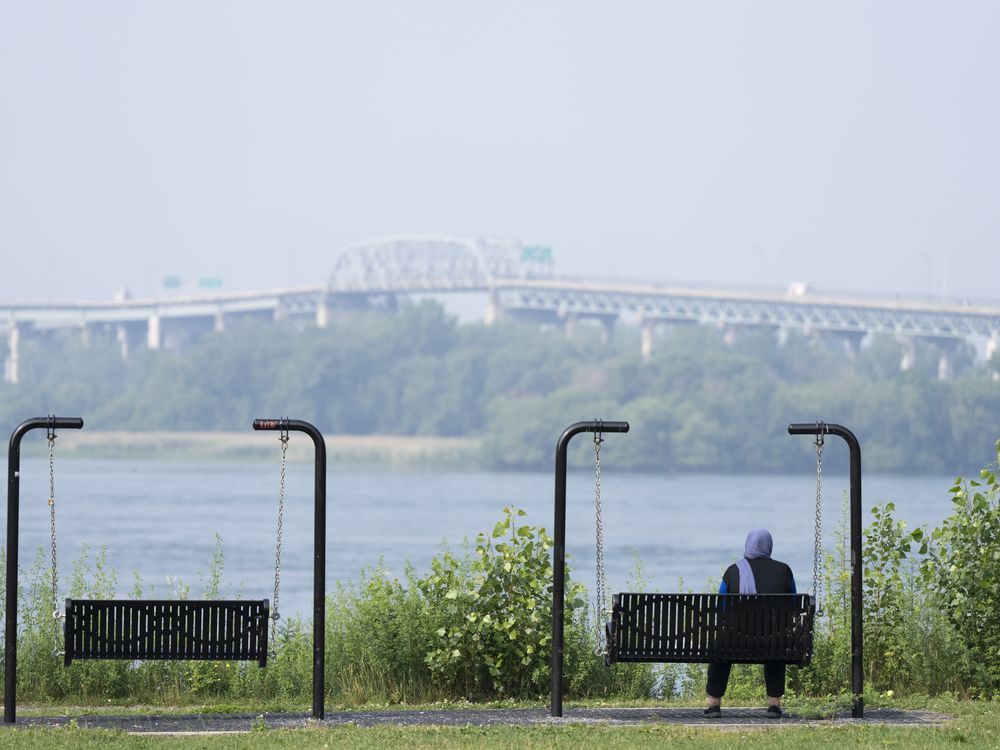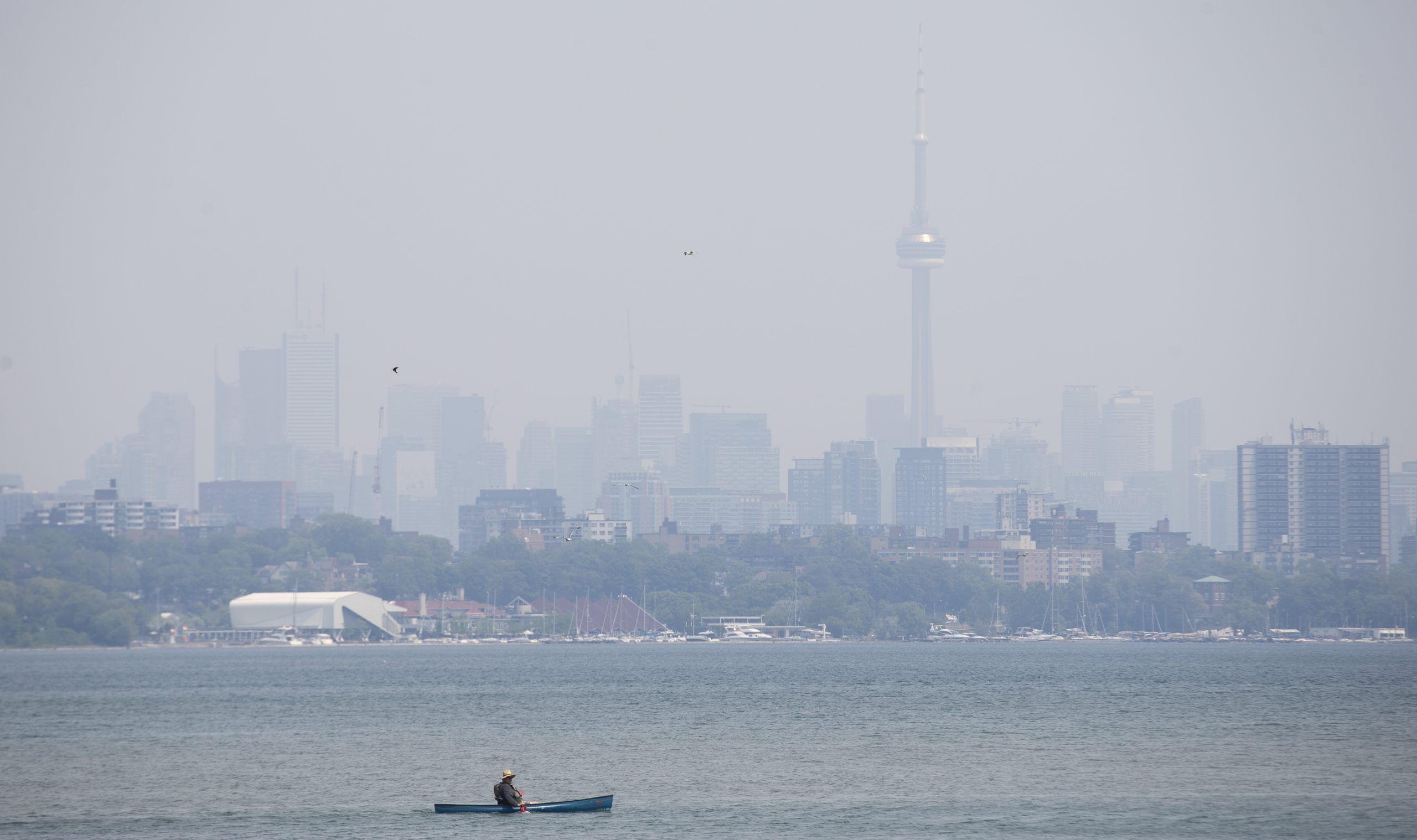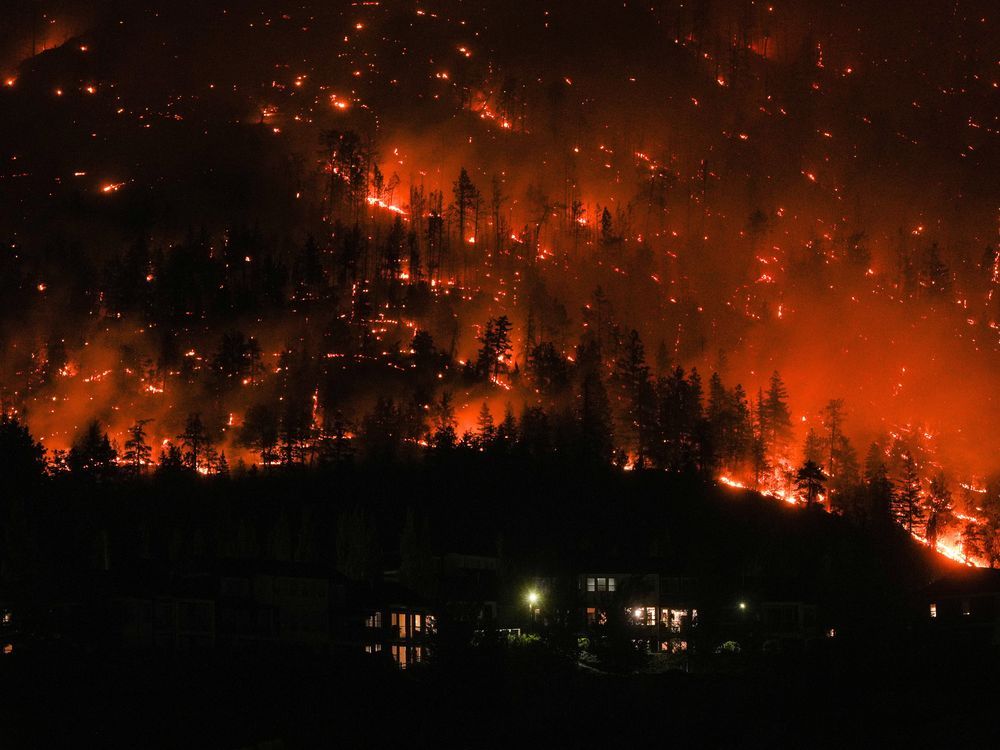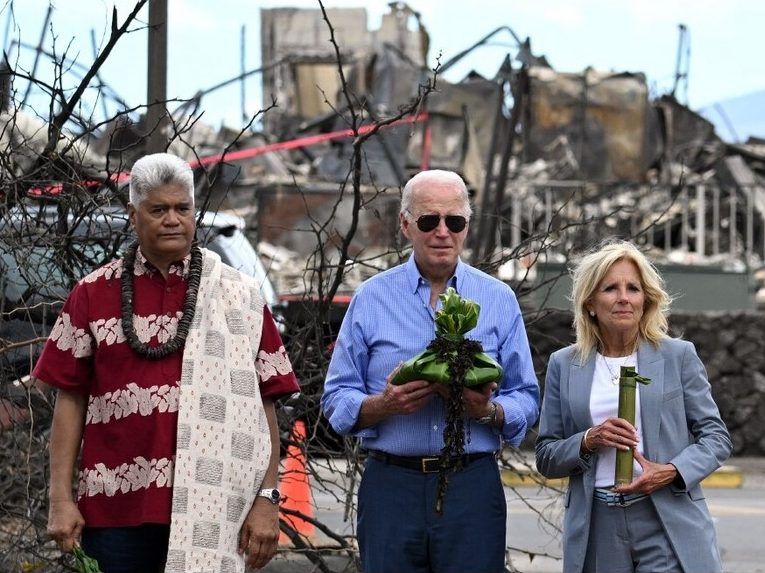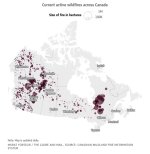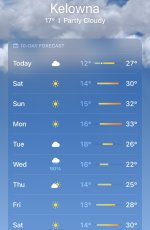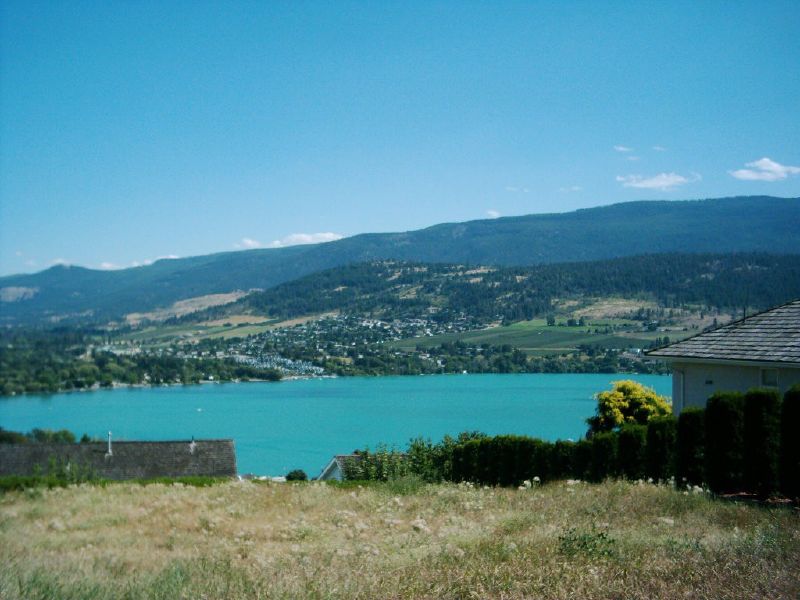Maui emergency services chief who defended not activating sirens during fire resigns
Hawaii has what it touts as the largest system of outdoor alert sirens in the world
Author of the article:Associated Press
Associated Press
Bobby Caina Calvan, Jennifer Sinco Kelleher and Christopher Weber
Published Aug 18, 2023 • Last updated 1 day ago • 4 minute read
LAHAINA, Hawaii — An emergency official who defended a decision to not sound outdoor alert sirens on Maui as a ferocious fire raged has resigned.
Maui Emergency Management Agency Administrator Herman Andaya had said this week that he had no regrets about not deploying the system because he feared it could have caused people to go “mauka,” a Hawaiian term that can mean toward the mountains or inland.
“If that was the case, then they would have gone into the fire,” Andaya explained. He stepped down Thursday, a day later.
The decision to not use the sirens, coupled with water shortages that hampered firefighters and an escape route clogged with vehicles that were overrun by flames, has brought intense criticism from many residents following the deadliest wildfire in the U.S. in more than a century.
With the death toll at 111, the search for the missing moved beyond the devastated town of Lahaina to other communities that were destroyed. Teams had covered about 58% of the Lahaina area and the fire was 90% contained as of Thursday night, Maui County officials said.
Six forensic anthropologists with the Department of Defense POW/MIA Accounting Agency are assisting in gathering and identifying human remains, the Pentagon said in a statement Friday. The group is experienced in verifying DNA from long-lost service members, many of whom died as long ago as World War II.
Mayor Richard Bissen accepted Andaya’s resignation effective immediately, the County of Maui announced on Facebook. Andaya cited unspecified health reasons for leaving his post, with no further details provided.
“Given the gravity of the crisis we are facing, my team and I will be placing someone in this key position as quickly as possible and I look forward to making that announcement soon,” Bissen said in the statement.
The lack of sirens has emerged as a potential misstep, part of a series of communication issues that added to the chaos, according to reporting by The Associated Press.
Hawaii has what it touts as the largest system of outdoor alert sirens in the world, created after a 1946 tsunami that killed more than 150 on the Big Island. Its website says they may be used to alert for fires.
On Wednesday, Andaya vigorously defended his qualifications for the job, which he had held since 2017. He said he was not appointed but had been vetted, took a civil service exam and was interviewed by seasoned emergency managers.
Andaya said he had previously been deputy director of the Maui County Department of Housing and Human Concerns and chief of staff for former Maui County Mayor Alan Arakawa for 11 years. During that time, he said, he often reported to “emergency operations centers” and participated in numerous trainings.
“So to say that I’m not qualified I think is incorrect,” he said.
Arakawa, who noted Andaya was scrutinized for the job by the county’s personnel service, said he was disappointed by the resignation “because now we’re out one person who is really qualified.”
“He was trying to be strong and trying to do the job,” Arakawa said about the wildfire response. “He was very, very heartbroken about all the things that happened.”
Hawaii Attorney General Anne Lopez said earlier Thursday that an outside organization will conduct “an impartial, independent” review of the government’s response and officials intend “to facilitate any necessary corrective action and to advance future emergency preparedness.” The investigation will likely take months, she added.
Corrine Hussey Nobriga said it was hard to lay blame for a tragedy that took everyone by surprise, even if some of her neighbors raised questions about the absence of sirens and inadequate evacuation routes.
The fire moved quickly through her neighborhood, though her home was spared.
“One minute we saw the fire over there,” she said, pointing toward faraway hills, “and the next minute it’s consuming all these houses.”
Displaced residents are steadily filling hotels that are prepared to house them and provide services until at least next spring.
Authorities hope to empty crowded, uncomfortable group shelters by early next week, said Brad Kieserman, vice president for disaster operations with the American Red Cross. Hotels also are available for eligible evacuees who have spent the last eight days sleeping in cars or camping in parking lots, he said.
Contracts with the hotels will last for at least seven months but could easily be extended, he said. Service providers at the properties will offer meals, counseling, financial assistance and other disaster aid.
Green has said at least 1,000 hotel rooms will be set aside. In addition, Airbnb said its nonprofit wing will provide properties for 1,000 people.
The governor also has vowed to protect local landowners from being “victimized” by opportunistic buyers. Green said Wednesday he instructed the state attorney general to work toward a moratorium on land transactions in Lahaina, even as he acknowledged that would likely face legal challenges.
Since the flames consumed much of Lahaina more than a week ago, locals have feared a rebuilt town could become even more oriented toward wealthy visitors.
The cause of the wildfires is under investigation. But Hawaii is increasingly at risk from disasters, with wildfire rising fastest, according to an AP analysis of FEMA records.
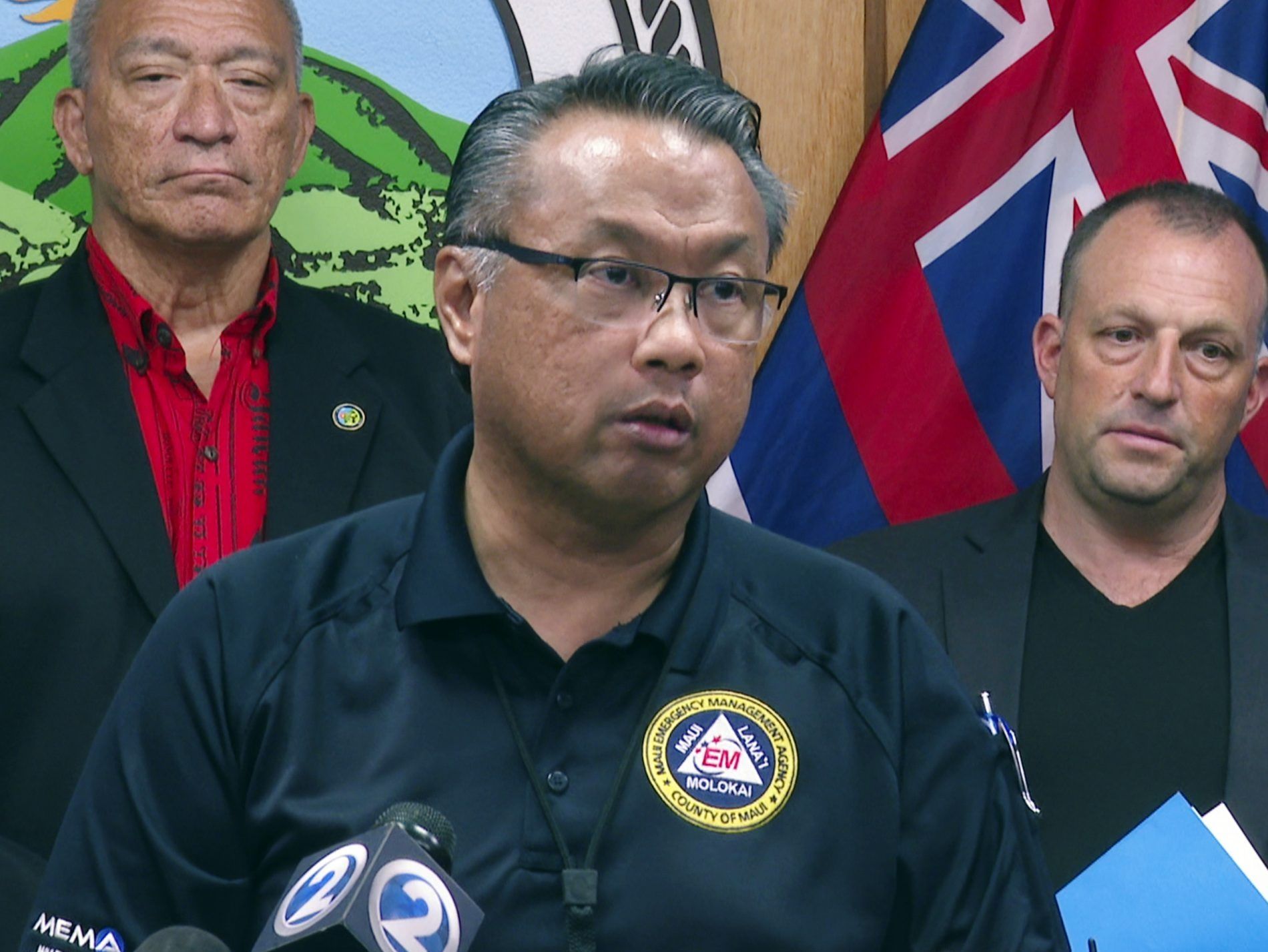
 torontosun.com
torontosun.com
Hawaii has what it touts as the largest system of outdoor alert sirens in the world
Author of the article:Associated Press
Associated Press
Bobby Caina Calvan, Jennifer Sinco Kelleher and Christopher Weber
Published Aug 18, 2023 • Last updated 1 day ago • 4 minute read
LAHAINA, Hawaii — An emergency official who defended a decision to not sound outdoor alert sirens on Maui as a ferocious fire raged has resigned.
Maui Emergency Management Agency Administrator Herman Andaya had said this week that he had no regrets about not deploying the system because he feared it could have caused people to go “mauka,” a Hawaiian term that can mean toward the mountains or inland.
“If that was the case, then they would have gone into the fire,” Andaya explained. He stepped down Thursday, a day later.
The decision to not use the sirens, coupled with water shortages that hampered firefighters and an escape route clogged with vehicles that were overrun by flames, has brought intense criticism from many residents following the deadliest wildfire in the U.S. in more than a century.
With the death toll at 111, the search for the missing moved beyond the devastated town of Lahaina to other communities that were destroyed. Teams had covered about 58% of the Lahaina area and the fire was 90% contained as of Thursday night, Maui County officials said.
Six forensic anthropologists with the Department of Defense POW/MIA Accounting Agency are assisting in gathering and identifying human remains, the Pentagon said in a statement Friday. The group is experienced in verifying DNA from long-lost service members, many of whom died as long ago as World War II.
Mayor Richard Bissen accepted Andaya’s resignation effective immediately, the County of Maui announced on Facebook. Andaya cited unspecified health reasons for leaving his post, with no further details provided.
“Given the gravity of the crisis we are facing, my team and I will be placing someone in this key position as quickly as possible and I look forward to making that announcement soon,” Bissen said in the statement.
The lack of sirens has emerged as a potential misstep, part of a series of communication issues that added to the chaos, according to reporting by The Associated Press.
Hawaii has what it touts as the largest system of outdoor alert sirens in the world, created after a 1946 tsunami that killed more than 150 on the Big Island. Its website says they may be used to alert for fires.
On Wednesday, Andaya vigorously defended his qualifications for the job, which he had held since 2017. He said he was not appointed but had been vetted, took a civil service exam and was interviewed by seasoned emergency managers.
Andaya said he had previously been deputy director of the Maui County Department of Housing and Human Concerns and chief of staff for former Maui County Mayor Alan Arakawa for 11 years. During that time, he said, he often reported to “emergency operations centers” and participated in numerous trainings.
“So to say that I’m not qualified I think is incorrect,” he said.
Arakawa, who noted Andaya was scrutinized for the job by the county’s personnel service, said he was disappointed by the resignation “because now we’re out one person who is really qualified.”
“He was trying to be strong and trying to do the job,” Arakawa said about the wildfire response. “He was very, very heartbroken about all the things that happened.”
Hawaii Attorney General Anne Lopez said earlier Thursday that an outside organization will conduct “an impartial, independent” review of the government’s response and officials intend “to facilitate any necessary corrective action and to advance future emergency preparedness.” The investigation will likely take months, she added.
Corrine Hussey Nobriga said it was hard to lay blame for a tragedy that took everyone by surprise, even if some of her neighbors raised questions about the absence of sirens and inadequate evacuation routes.
The fire moved quickly through her neighborhood, though her home was spared.
“One minute we saw the fire over there,” she said, pointing toward faraway hills, “and the next minute it’s consuming all these houses.”
Displaced residents are steadily filling hotels that are prepared to house them and provide services until at least next spring.
Authorities hope to empty crowded, uncomfortable group shelters by early next week, said Brad Kieserman, vice president for disaster operations with the American Red Cross. Hotels also are available for eligible evacuees who have spent the last eight days sleeping in cars or camping in parking lots, he said.
Contracts with the hotels will last for at least seven months but could easily be extended, he said. Service providers at the properties will offer meals, counseling, financial assistance and other disaster aid.
Green has said at least 1,000 hotel rooms will be set aside. In addition, Airbnb said its nonprofit wing will provide properties for 1,000 people.
The governor also has vowed to protect local landowners from being “victimized” by opportunistic buyers. Green said Wednesday he instructed the state attorney general to work toward a moratorium on land transactions in Lahaina, even as he acknowledged that would likely face legal challenges.
Since the flames consumed much of Lahaina more than a week ago, locals have feared a rebuilt town could become even more oriented toward wealthy visitors.
The cause of the wildfires is under investigation. But Hawaii is increasingly at risk from disasters, with wildfire rising fastest, according to an AP analysis of FEMA records.

Maui emergency services chief who defended not activating sirens during fire resigns
Hawaii has what it touts as the largest system of outdoor alert sirens in the world, created after a 1946 tsunami that killed more than 150
